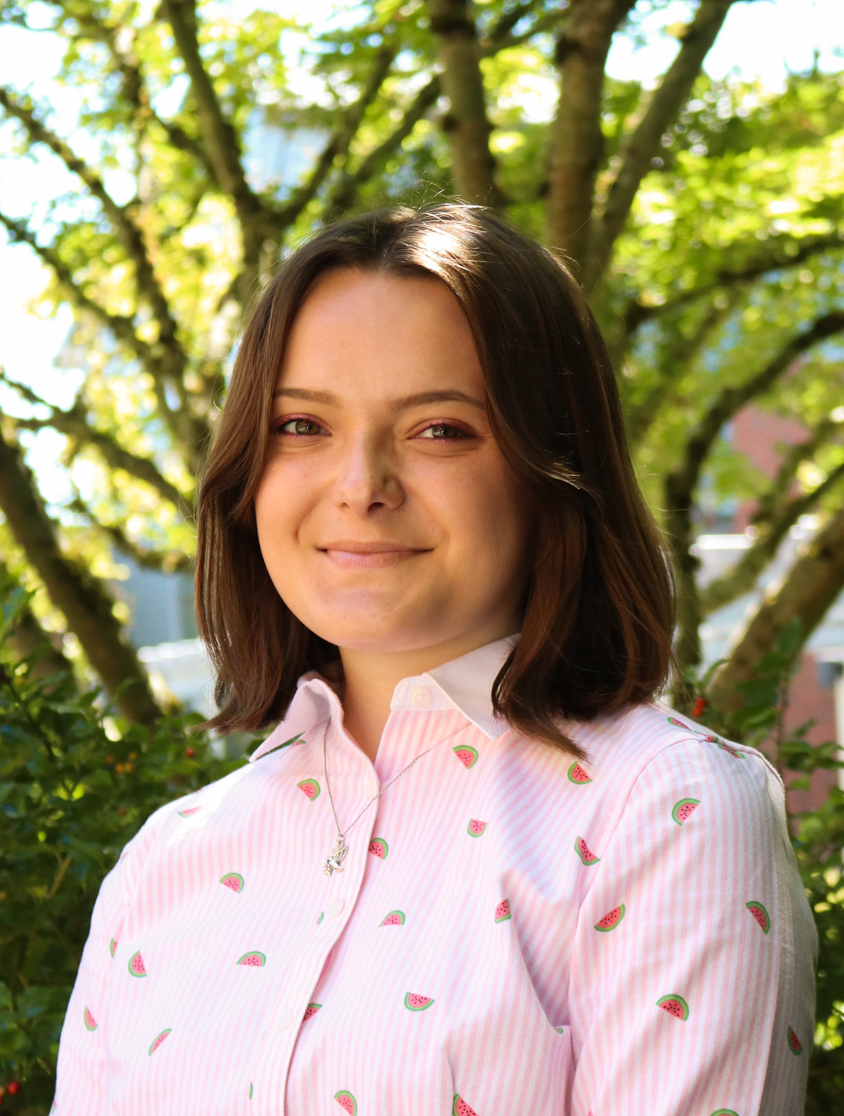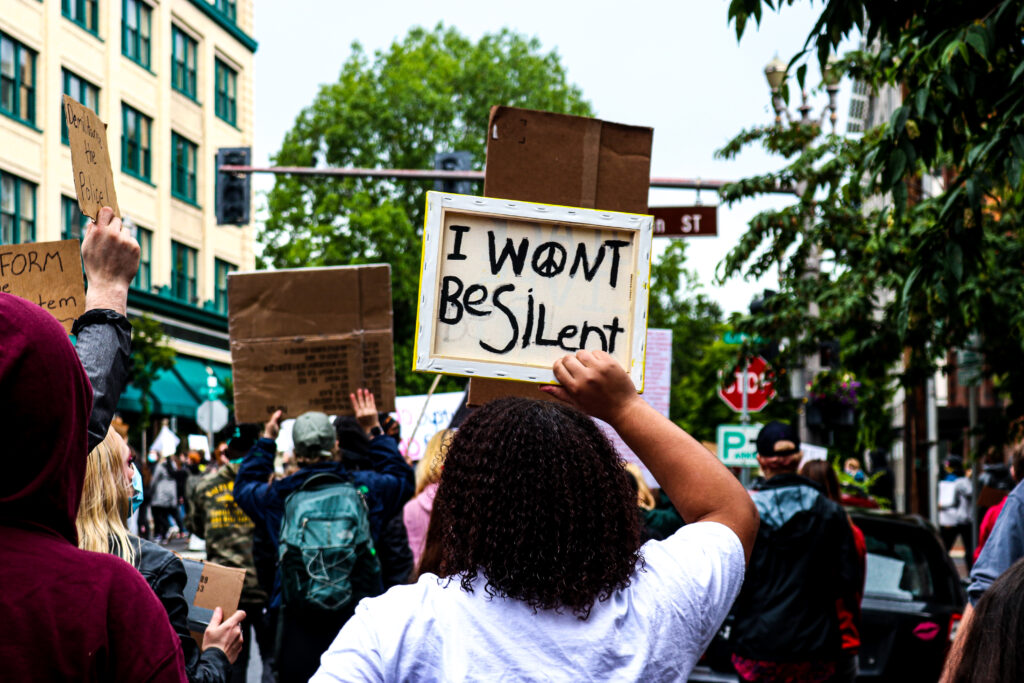The Black Lives Matter movement brings attention to the fight for racial equality, elimination of police violence and uplifting Black voices around the world. As protestors gather to show support for all Black lives lost due to police brutality, many in the WSU Vancouver community are engaging in their own ways of social activism.
According to the Black Lives Matter organization, the global network was officially established by Alicia Garza, Opal Tometi and Patrisse Khan-Cullors in 2013 in response to the unjust murder of Trayvon Martin. Black Lives Matter still remains a powerful slogan, plastered on signs and seen throughout social media as a symbol for progressive action to eliminate white supremacy and promote legal reform. WSU Vancouver students and staff have shown their support for Black Lives Matter, standing in solidarity with the movement and using their own voices to fight for change.
Jose Scott, an alumni of WSU Vancouver who majored in public affairs and previously founded the Black People United club on campus, explained the club has worked closely with Black Lives Matter Vancouver and focuses on community based action. Scott added although he does not attend protests in person, he commends the people who do and says he utilizes other tools like educating his friends and family about the movement.

(Emily Baumann / The VanCougar)
“People are protesting in favor of Black lives, I think that is beautiful to see. … I would love to see us making real systemic change in government and in politics. I think that is so necessary, and I think in a lot of ways we lost momentum post civil rights era, and now we are picking that momentum up, and I think we have to carry it. … It is our goal not as Black people but as people, at the end of the day we are talking about human rights.”
Domanic Thomas, vice chancellor for student affairs and enrollment, said WSU Vancouver has been a hub for rallying and bringing students together to support movements like Black Lives Matter. However, due to the COVID-19 pandemic, there have been opportunities for students to unite virtually through Wellness Wednesdays, communicating with the Center for Intercultural Learning and Affirmation, classroom workshops and Friday lunch gatherings. Thomas has advocated for the Black Lives Matter movement by donating to various organizations and encourages students to show support for others in these trying times.
“What I want to encourage students, colleagues and others is to bring attention in the moment. To show love, care, support, solidarity and then action. Let us show love, support and care for folks and roll that into action because I do not think the change truly happens without it,” Thomas said.

(Photo courtesy of WSU Vancouver)
Other WSU Vancouver staff such as Dr. Obie Ford III, vice chancellor for equity, diversity and inclusion, has attended protests and recently spoke at the “Car Rally for Black Lives” in Vancouver. Ford III said it is an honor to speak out in support of both WSU Vancouver’s community and the local community as a whole. He also recommended that people educate themselves thoroughly by understanding what the Black Lives Matter movement means at its core.
“One of the first places to begin is understanding that the movement for Black Lives in the U.S. is an over 400-year-old movement dating back to the enslavement of Africans in the U.S. From that time to now, there have been countless uprisings and movements for the civil rights, humanity and mattering of Black lives and Black people,” Ford said. “This uprising is powerful and has made more fractures in that foundation. Our work continues to dismantle white supremacy, rebalance power and center Black lives. It is not until Black Lives are centered and matter, that all lives will matter.”
Ford III said the presence of social media tied with the movement can have both destruction and value. He explained threatening images shown on social media are presented constantly and are traumatizing to the Black community. However, he also said it can be useful for spreading information to the general public about the repercussions of racism and police brutality.

(Photo courtesy of Dr. Obie Ford III)
“These acts of violence and trauma are lived by Black people daily and can be found every day on social media. It is important to recognize the harmful effect of these images on Black people. At the same time, social media has been an important tool to capturing and broadcasting violence, murders and inequities of Black people, including Black transgender and gender-variant people. But for images and recordings on social media, we may not be able to speak the names of and advocate justice for George Floyd, Breonna Taylor, Ahmaud Arbery, Rayshard Brooks, Carlos Hunter, Manuel Ellis, Atatiana Jefferson, Sandra Bland, Michael Brown, Philando Castile, Tony McDade, Dominique ‘Rem’mie’ Fells, Riah Milton, Muhlaysia Booker and many others whose names we know, and whose names we may never know,” Ford III said.
Although sharing images of violence on social media can be difficult, Brittany Lovely, alumni of WSU Vancouver and public affairs major, said it can also be a place for people to see how others feel. She added that it may be helpful to utilize your social platform, but people need to do more outside the scope of social media in order to support change with action.
“I am engaging in as many ways as possible. … I am not saying [posting on social media] does not help, but it is not enough. We have got to do more,” Lovely said.
“Social media has allowed for people to organize and has allowed for people to share their stories. It has allowed us access to the horrific events. Unfortunately, we can watch our brothers and sisters die. This is something that can affect everybody and it can reach every single person. Mobilize them and engage with that emotion. Which, I think has helped propel the movement, when people feel that, it calls them to action.”

(Photo by Ashten Wagoner)
As Black Lives Matter continues to be a powerful movement, change is possible. Dr. Ford III said it is saddening to still fight for the end of racism in 2020, but he encourages people to never lose hope.
“Yet, this is the time to not lose hope but to find and to have hope and to push collectively to demolish the foundation of white supremacy and build a community of racial equity. Let’s commit to making real systemic change by formalizing anti-racist policies, processes and practices that rebalance power and centers Black lives and historically marginalized populations,” Ford said. “When Black Lives Matter, all lives will matter. This is critical work steeped in Love. Black Lives Matter.”
Equity and justice resources assembled by WSU Vancouver can be found here and more information about the Black Lives Matter movement, how to take action, where to donate and many other resources can be found here.

Olivia is a senior studying English at WSU Vancouver.
